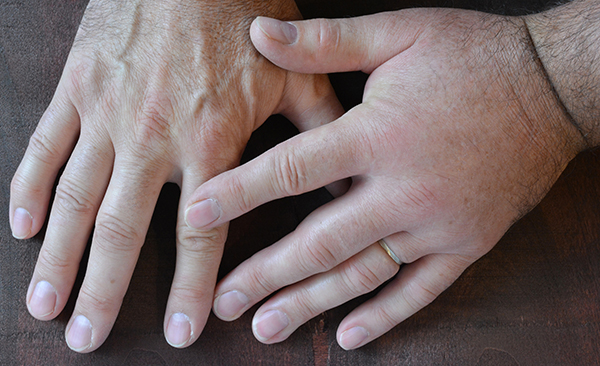You may suspect the onset of lymphedema if one or more of the following signs appear:
- A sensation of heaviness, tingling or “mini electric shocks” in the limb at risk
- Tighter, harder skin, or skin that marks easily under pressure
- Clothing or jewelry suddenly feels too tight
- Loss of flexibility in the arm, leg or neck area at risk
- Sudden or gradual swelling
- Swelling that is more pronounced in hot, humid weather or after exertion
- Diffuse, acute or searing pain
- Redness, rash, itching, heat, infection of the area at risk – with or without fever and chills
- The appearance of wounds that do not heal
Don’t ignore these symptoms. Don’t be lulled into denial.
What do I need to do?
Early detection and treatment work best to minimize swelling and reduce complications. Serious complications include cellulitis – a potentially fatal infection – poorly healing wounds, hardening skin and tissue, and loss of mobility.
Consult a physician, nurse or certified lymphedema therapist without delay if you notice any of these signs or any changes that worry you. Prompt intervention can limit swelling and help prevent complications. You can also learn more about lymphedema by contacting the LAQ Therapeutic Support Program, free of charge.
If you notice any signs of infection – redness, heat, fever – consult your physician, nurse or pharmacist IMMEDIATELY. Or go to the emergency room. Lymphedema-related infections such as cellulitis and lymphangitis can lead to life-threatening complications and further weaken the lymphatic system. These infections require antibiotic treatment.
The LAQ Cellulitis Card lists the symptoms of infection and alerts your caregivers. Get your Cellulitis card. Become a member of the LAQ.
© Lymphedema Association of Québec
* PRINTING AND DISTRIBUTION AUTHORIZATION: Reprinting permitted for personal use only. Content may be distributed/shared only with written permission from LAQ. Request permission from aql@infolympho.ca

